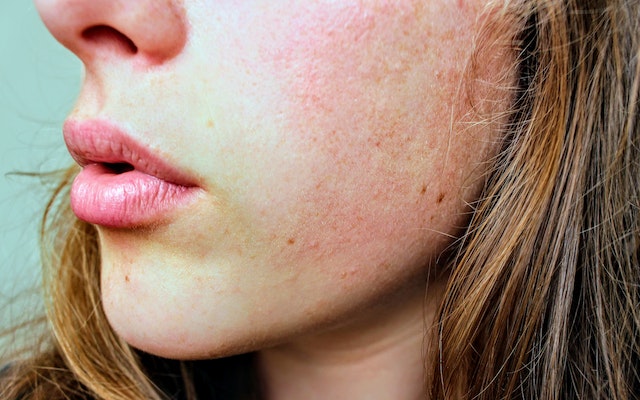
How To Protect Your Skin From Harsh Winter Conditions?
Winter brings cozy sweaters, hot beverages, and festive celebrations. However, it also introduces a host of challenges for your skin. Harsh winter conditions, such as cold temperatures, low humidity, and biting winds, can wreak havoc on your skin, leaving it dry, irritated, and prone to damage.
To maintain a healthy and radiant complexion throughout the winter season, it’s crucial to prioritize winter skin care. To help you combat these issues, we have compiled the ultimate guide to protecting your skin during the winter months.
In this comprehensive guide, we will explore the importance of winter skin care, and common skin issues that arise during this time, and provide valuable tips to protect and nourish your skin in the frosty months.
Importance of Winter Skin Care
Winter skin care is not just about maintaining your appearance; it’s about safeguarding your skin’s health and well-being. The cold weather tends to strip the skin of its natural moisture, leading to dryness, flakiness, and even irritation.
Additionally, the use of indoor heating systems further dehydrates the skin, exacerbating these concerns. By implementing a proper winter skincare routine, you can safeguard your skin from these detrimental effects and maintain a healthy complexion throughout the season.
Common Skin Issues During Winter
During the winter, the skin faces several common issues that require special attention. Understanding the potential skin issues that arise during the winter helps us take proactive steps to address them effectively. One of the primary concerns is dryness.
The cold air lacks moisture, causing the skin to lose its natural hydration. This leads to dry, tight, and flaky skin, which can be uncomfortable. Chapped lips, for instance, are a prevalent concern due to the cold and dry air. The skin on the lips is delicate and prone to drying out, leading to discomfort and even painful cracks.
Another common issue is dehydration. Many people mistakenly assume that dehydration only occurs in hot weather, but during the winter, it’s equally important to stay hydrated.
The dry atmosphere, coupled with indoor heating, can sap moisture from your skin, leaving it dull and lackluster. These common winter skin concerns require special attention and care.
Understanding Your Skin’s Needs in Winter
To effectively address winter skin concerns, it’s essential to understand how cold weather affects the skin. The cold temperatures constrict blood vessels, limiting blood flow to the skin’s surface.
This reduces the delivery of essential nutrients and oxygen, contributing to a dull complexion. Moreover, the skin’s protective barrier weakens, allowing moisture to evaporate more quickly, leading to dryness and increased sensitivity.
The combination of low humidity and harsh winds further depletes the skin’s natural moisture, exacerbating these issues. Understanding these underlying processes helps us tailor our winter skincare routine to combat these specific challenges.
Dryness and Dehydration Explained
Dryness and dehydration are two distinct yet interconnected conditions that affect the skin during the winter. Dryness refers to the lack of natural oils or lipids in the skin, resulting in a rough and uncomfortable texture.
Dehydration, on the other hand, signifies insufficient moisture or water content in the skin cells. Both conditions can manifest simultaneously, leading to an uncomfortable and compromised skin barrier.
Combating dryness and dehydration requires a combination of external hydration and internal nourishment.
Essential Winter Skin Care Tips
a) Hydration and Moisturization Techniques
Hydrating your skin from within is as important as topical moisturization. Drink an adequate amount of water throughout the day to keep your skin hydrated.
Additionally, use a hydrating facial mist to replenish moisture levels on the go. When it comes to moisturizing, opt for rich, emollient creams that provide a barrier to lock in moisture and shield your skin from harsh elements.
b) Choosing the Right Moisturizer for Winter
Selecting the right moisturizer plays a vital role in protecting your skin during the winter. Look for moisturizers that contain ingredients like hyaluronic acid, ceramides, and glycerin, as these help to attract and retain moisture in the skin.
Consider using heavier creams or ointments instead of lighter lotions to provide intense hydration and nourishment.
c) Protecting Your Skin from Harsh Elements
The cold weather and harsh winds can strip your skin of its natural oils, leaving it vulnerable and dry. Protect your skin by covering it with scarves, hats, and gloves when venturing outdoors.
These accessories act as a barrier, shielding your skin from the cold and wind. Additionally, don’t forget to apply a broad-spectrum sunscreen with an SPF of 30 or higher, even in the winter. The sun’s rays can still cause damage, especially when reflected off snow.
d) The Role of Sunscreen in Winter
Sunscreen is not just for the summer months. Even during the winter, the sun’s UV rays can penetrate through the clouds and cause damage to your skin.
Apply a generous amount of sunscreen to all exposed areas of your skin, including your face, neck, and hands. Look for a sunscreen that offers both UVA and UVB protection and reapply every two hours, especially if you’re spending prolonged periods of time outdoors.
e) Lip Care and Preventing Chapping
Chapped lips are a common winter woe. To prevent chapping, keep your lips well-moisturized by applying a lip balm or ointment that contains ingredients like beeswax, shea butter, or coconut oil.
Avoid licking your lips, as saliva can further dry them out. Exfoliate your lips gently with a soft toothbrush or a lip scrub to remove dead skin cells, and always carry a lip balm with you to reapply throughout the day.
Creating a Winter Skin Care Routine
Establishing a winter skincare routine is essential to combating the effects of the season on your skin. Consider incorporating the following steps into your daily routine:
a) Cleansing and Exfoliation During Winter
Opt for a gentle cleanser that effectively removes impurities without stripping away essential oils from your skin. Harsh cleansers can further contribute to dryness and irritation.
Exfoliation is also crucial during the winter to slough off dead skin cells and promote cell turnover. Choose a mild exfoliator that doesn’t cause excessive dryness or irritation, and limit exfoliation to once or twice a week.
b) Incorporating Hydrating Masks and Serums
Treat your skin to hydrating masks and serums to provide an extra boost of moisture. Look for masks that contain ingredients like hyaluronic acid, aloe vera, or honey, which help to replenish and retain moisture in your skin.
Serums containing antioxidants, such as vitamin C or green tea extract, can also provide added protection against environmental damage.
c) Selecting Gentle Winter-Friendly Products
During the winter, it’s important to choose skincare products that are gentle and nourishing. Avoid products that contain harsh ingredients like alcohol or fragrances, as these can further dry out your skin.
Opt for products with natural, soothing ingredients that help replenish and strengthen your skin’s barrier function.
d) Nighttime Skin Care Regimen for Winter
Before bed, indulge your skin in a nighttime routine that focuses on deep hydration and repair. Cleanse your skin to remove any dirt or makeup, then apply a nourishing night cream or facial oil.
These products work overnight to replenish moisture and restore your skin’s balance. Don’t forget to give your lips some extra TLC by applying a thick layer of lip balm before bedtime.
Nourishing Your Skin from Within
In addition to external care, nourishing your skin from within plays a vital role in maintaining its health during the winter.
a) Hydrating Foods and Beverages for Healthy Skin:
Increase your intake of water-rich fruits and vegetables like watermelon, cucumbers, and citrus fruits. These provide hydration and essential vitamins for healthy skin.
b) The Importance of Staying Hydrated:
Drink an adequate amount of water throughout the day to keep your skin hydrated from within.
While it may be tempting to consume warm beverages like coffee and tea during the winter, remember that excessive caffeine intake can dehydrate your skin.
Balance your beverage choices by incorporating herbal teas and infused water for a refreshing hydration boost.
c) Dietary Considerations for Winter Skin Care:
Certain nutrients play a vital role in promoting healthy skin. Ensure your diet includes foods rich in vitamins A, C, and E, as well as antioxidants.
These nutrients help to fight free radicals, boost collagen production, and maintain the overall health of your skin. Consider incorporating citrus fruits, berries, leafy greens, and nuts into your meals for a nourishing winter diet.
Special Considerations for Winter Skin
Different skin types require specific attention during the winter. Consider the following tips:
a) Skincare for Sensitive Skin in Winter:
If you have sensitive skin, it’s important to take extra care during the winter. Opt for fragrance-free and hypoallergenic skin care products to minimize irritation.
Avoid harsh exfoliants and opt for gentle cleansing and moisturizing routines. Consider consulting a dermatologist for personalized recommendations and guidance.
b) Managing Eczema and Other Skin Conditions:
Winter can exacerbate skin conditions like eczema, psoriasis, and rosacea. It’s essential to follow a consistent skincare routine and use products specifically formulated for your condition.
Avoid triggers like hot showers, harsh soaps, and wool clothing. Consult a dermatologist for a comprehensive treatment plan tailored to your specific needs.
c) Winter Skincare for Different Skin Types (e.g., Oily, Combination):
Different skin types require customized care during the winter. Oily skin still needs moisturization, but it’s important to choose lightweight, non-comedogenic products.
Combination skin may require adjusting skincare products for different areas of the face. Understanding your skin type and its specific needs will help you curate a winter skincare routine that addresses your concerns effectively.
Beyond Skin Care: Winter Wellness
While focusing on skincare is essential, it’s also important to consider overall winter wellness to support your skin’s health:
a) Protecting Your Skin from Indoor Heating:
Indoor heating systems can further dehydrate your skin. Maintain a comfortable humidity level in your home, use a humidifier, and avoid sitting too close to direct heat sources.
b) Maintaining a Balanced Lifestyle in Winter:
Winter can sometimes lead to a more sedentary lifestyle, but staying active has numerous benefits for your skin and overall well-being.
Engage in regular physical activity to improve blood circulation, promote a healthy complexion, and boost your mood. Consider indoor exercises, yoga, or winter sports to keep yourself active and energized.
c) Clothing and Accessories for Winter Skin Protection:
Choose clothing made from natural, breathable fabrics like cotton or silk to prevent irritation and allow your skin to breathe.
Wear gloves, scarves, and hats to protect exposed skin from cold winds. Don’t forget to apply sunscreen to any exposed areas, such as your face, neck, and hands, before heading outdoors.
Conclusion
Protecting your skin from the harsh conditions of winter is essential to maintaining its health and radiance.
By following these winter skin care tips, understanding your skin’s needs, and adopting a holistic approach to winter wellness, you can keep your skin healthy, hydrated, and radiant even in the harshest winter conditions.
Remember, Stay proactive and nourish your skin to embrace the beauty of winter while maintaining a glowing complexion.


You May Also Like

How to Get Rid of Dark Circles: Effective Tips and Products
31 December 2023
Top 5 DIY Face Masks For Radiant Skin At Home
14 October 2023
